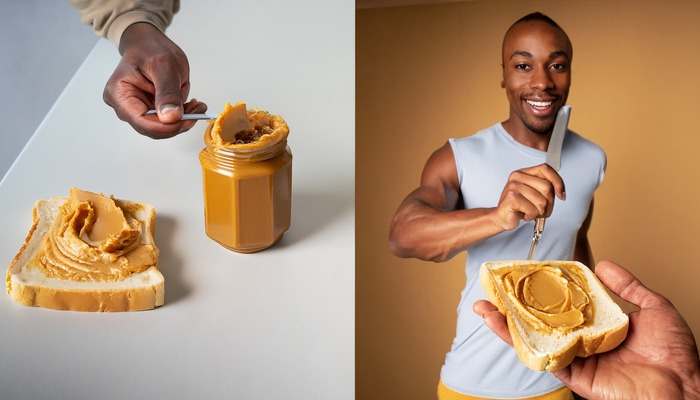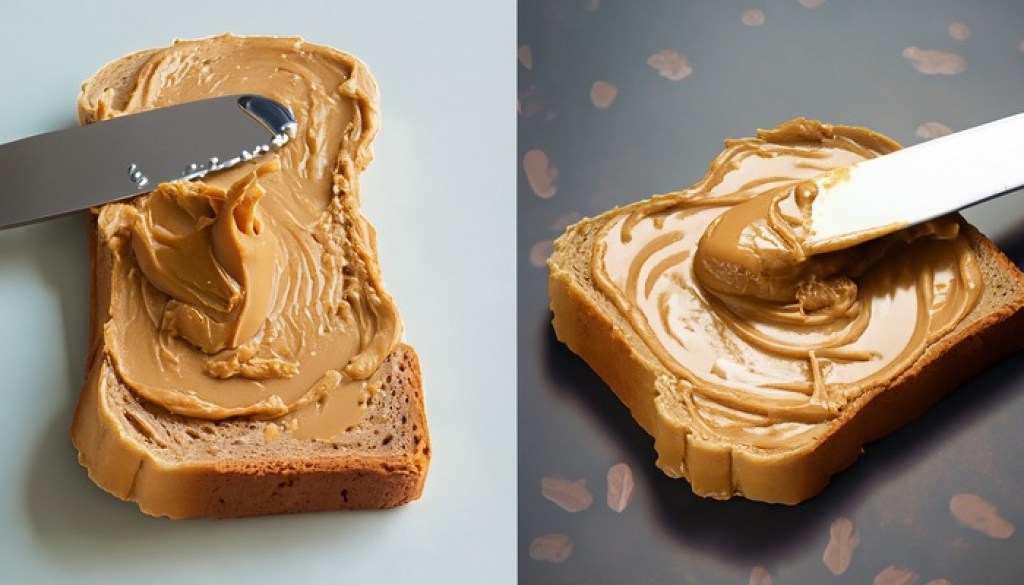
Hey there, my dear friends! Have you ever wondered if peanut butter, one of our all-time favorite spreads, can actually help boost testosterone levels?
Well, get ready to be amazed because the answer is yes! In this post we'll delve into the nutritional value of peanut butter, scientific evidence supporting its connection to testosterone levels, and how you can easily incorporate it into your diet for a natural testosterone boost. So, let's dive in!
Testosterone levels play a crucial role in our overall health, from muscle development to mood regulation. While there are various foods known for boosting testosterone, one that might surprise you is peanut butter.
Yes, dear friends, our beloved peanut butter has the potential to improve Testosterone production and effect our hormone health positively.
Peanut butter itself doesn't contain testosterone, however being packed with protein, healthy mono-saturated and saturated fats and high amount of Zinc, peanut butter provides the building blocks necessary to support the processes involved in testosterone production.
Let's explore the nutritional wonders of peanut butter and unlock its testosterone-boosting secrets.
Understanding the Nutritional Value of Peanut Butter
When it comes to nutritional value, peanut butter is a superstar. It boasts a range of health benefits that go beyond satisfying our taste buds. The following sections highlight key nutrients found in peanut butter and how they contribute to testosterone production.
A. Protein Content and Testosterone
Peanut butter is packed with protein, a vital building block for muscle growth and hormone production. Consuming enough protein is essential for maintaining healthy testosterone levels as protein is composed of amino acids, which are the essential building blocks of hormones including testosterone.
By adding peanut butter to your diet, you'll give your body the fuel it needs to produce and regulate testosterone effectively.
Testosterone is also closely linked to muscle development and maintenance which requires proper protein intake to support muscle repair and growth.
While peanut butter itself doesn't contain testosterone, its protein content and essential amino acids contribute to muscle growth and support the intricate processes involved in testosterone production and regulation

B. Healthy Fats and Testosterone
Not all fats are created equal, and the ones found in peanut butter happen to be the good guys – monounsaturated fats. These heart-healthy fats not only provide a concentrated source of energy but also play a significant role in supporting hormone production, including testosterone.
Testosterone is a steroid hormone, and like other steroid hormones, its synthesis relies on certain fats. Monounsaturated fats, which make up a substantial portion of the fats in peanut butter, are particularly beneficial for hormone health. They have been shown to positively influence testosterone levels and overall hormonal balance
So, don't fret about the fat content in peanut butter; it's actually a key player in maintaining optimal testosterone levels.
C. Other Nutritional Elements
Peanut butter is not only rich in protein and healthy fats but also contains a host of other essential nutrients, including zinc, magnesium, and vitamins. These elements play vital roles in various physiological processes in the body, such as testosterone synthesis and overall hormonal balance.
Zinc, one of the key nutritional elements found in peanut butter, is an essential mineral required for the proper functioning of over 300 enzymes. It is a key player in the synthesis of testosterone and necessary for cell growth and division in the body.
Combined with its zinc content and other essential nutrients, peanut butter becomes a nutrient powerhouse that can support healthy testosterone production and overall hormonal balance
Scientific Evidence Linking Peanut Butter and Testosterone
Scientific research further solidifies the connection between peanut butter consumption and testosterone levels. Studies have shown promising results, indicating that the nutrients found in peanut butter can positively impact testosterone production.
While more research is needed, these findings suggest that adding peanut butter to your diet may help maintain healthy testosterone levels naturally.
How to Incorporate Peanut Butter into Your Diet
Incorporating peanut butter into your daily routine is both delicious and easy. You can spread it on whole-grain toast, mix it into smoothies, or enjoy it as a dip for fruits and vegetables.
Including peanut butter in a balanced diet that's rich in other testosterone-boosting foods, such as lean meats, nuts, and eggs, can help maximize its benefits.
Other Natural Testosterone Boosting Foods
While peanut butter may help boosting testosterone, it's important to remember that a well-rounded diet is key to maintaining optimal testosterone levels.
Incorporating other testosterone-boosting foods, such as spinach, avocados, and pumpkin seeds, will provide a wholesome approach to supporting your hormone health.
Finishing Notes
So, my dear friends, there you have it – the surprising connection between peanut butter and testosterone. By understanding its nutritional value and scientific evidence, we can confidently say that peanut butter can indeed help boost testosterone levels naturally.
So, let's embrace healthier food choices and make room for this nutty delight in our diets. Cheers to delicious and testosterone-boosting foods!
Feel free to comment on your experiences with peanut butter and other testosterone-boosting foods. Share the article if you found it helpful. And remember, stay tuned for more health tips and guides!
References
“Peanut butter, smooth style, without salt” data from the USDA FoodData Central: https://fdc.nal.usda.gov/fdc-app.html#/food-details/170567/nutrients
Volek, J. S., Kraemer, W. J., Bush, J. A., Incledon, T., & Boetes, M. (1997). Testosterone and cortisol in relationship to dietary nutrients and resistance exercise. Journal of Applied Physiology, 82(1), 49-54. https://doi.org/10.1152/jappl.1997.82.1.49
Prasad, A. S., Mantzoros, C. S., Beck, F. W. J., Hess, J. W., & Brewer, G. J. (1996). Zinc status and serum testosterone levels of healthy adults. Nutrition, 12(5), 344-348. https://doi.org/10.1016/S0899-9007(96)80058-X








